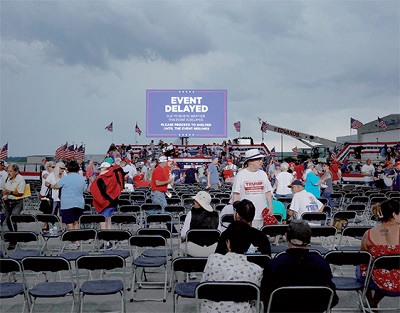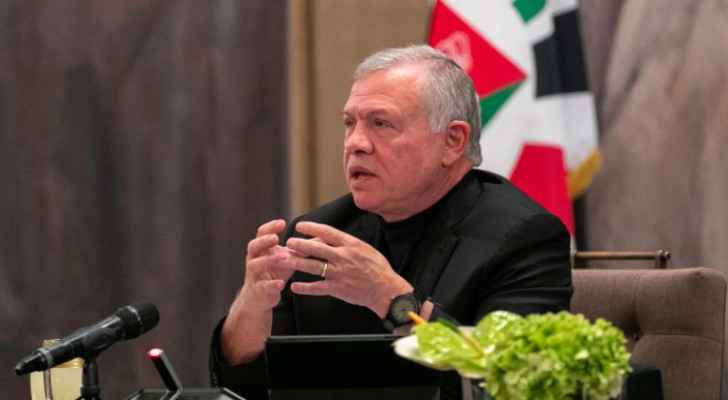Lebanon is a basket case run by a terror group: don’t fund it - By Tony Badran, Alarabiya
After two weeks of popular protests in Lebanon against the country’s corrupt political class, Lebanese prime minister Saad Hariri has handed his resignation. While some see this development as a victory for the protesters, such assessments miss the mark. The same political barons will now consult to form a new government, a process in which Iran’s arm in Lebanon, Hezbollah, has final say. Far from signaling a change in the system, the episode will have marked its regeneration.
Lebanon’s serious economic crisis, meanwhile, will still be there. Hariri’s gambit is to return as the head of a new government, in partnership with Hezbollah, present a plan for some reforms, and hope for a bailout from international donors. For the United States, this is not a desirable outcome. The Trump administration should carry on with its sanctions policy while continuing to oppose a bailout for Beirut. Insofar as the new government will be formed in partnership with Hezbollah, bailing out such a government means bailing out Hezbollah.
Whatever happens in Beirut now, the protests have offered a good opportunity to assess the American policy debate on Lebanon, and what lessons the US can draw from it moving forward.
Prior to the outbreak of protests, the near-consensual view among Lebanon watchers was that the country’s stability was paramount. Analysts and activists therefore were adamant that the US must handle Lebanon with kid gloves. This view decried any policy of cutting off aid to Lebanon or of harsh sanctions which could undermine the Lebanese banking sector, which is the backbone of the country’s economy. The criticism grew louder after the United States designated the Jammal Trust Bank in August: push any farther, the warning went, and chaos could ensue.
Proponents of this view argue that tough US sanctions, aimed at squeezing Hezbollah, are misguided and ultimately self-defeating. If Lebanon’s economy broke under US pressure, they argued, then the country would become a failed state. According to them, Hezbollah would benefit from this breakdown, with a broken economy and financially battered society signaling the end of any domestic opposition to Hezbollah.
This approach is misguided.
The current protests, which have included varied criticism of Hezbollah, only came about due to impending economic and financial collapse. It is unlikely that they would have surfaced had the system been floated yet again, for instance, through the injection of capital by well meaning but misguided Western powers or Gulf Arab states, which in previous crises, had made large deposits in Lebanon’s Central Bank. More to the point, such an investment in the survival of the existing political-economic order would be an investment in the Hezbollah-dominated status quo. Hezbollah, the most powerful actor in Lebanon, had orchestrated the formation of the previous government, installed its ally as president, imposed the electoral law of its choice, which handed its coalition the majority in parliament, and it directly influences government agencies. It will similarly be the decisive force in the formation of any new government. It is no coincidence that the person who has spoken most forcefully in defense of the status quo during the two weeks of protests, while issuing directives to the government, is Hezbollah chief, Hassan Nasrallah — the real head of state.
To be sure, the popular protests were not an uprising against Hezbollah per se. They were against the entire political class, of which Hezbollah is the head. However, this new popular street action was discomfiting to the organization. Especially disconcerting was the sight of Lebanese Shia participating in the protests, and denouncing the political class and Hezbollah — regardless of how mixed the references to the group may be. For instance, some protesters made a point of expressing their agreement with Hezbollah when it comes to enmity to Israel, or have pointedly avoided discussing the group’s armed status. Others made an appeal to Nasrallah asking him to join them and back their demands, thereby drawing a subtle distinction between him and the rest of the political class.
Still, unpredictable and uncontrolled popular mobilization among the Shia was not something Hezbollah wanted to see. Before Hariri's resignation, the party was trying to figure out how to reassert its authority. Rhetorically, it attempted to coopt the protesters’ demands for reform, but without much success. At the same time, Hezbollah wielded the weapon of intimidation, both rhetorically in Nasrallah’s threatening speeches, as well as on the streets, through groups of thugs attacking protesters, with the most violent such attack taking place in downtown Beirut shortly before Hariri handed his resignation. Aside from Beirut, the group cracked down hard on Shia areas to neutralize those regions and cut them off from the other parts of Lebanon’s sectarian geography.
Now that Hariri has resigned, albeit still serving in a caretaker capacity, what happens next is an open question. The protesters had rightly dismissed Hariri’s proposed plan for reforms. Will they now accept it, and whatever government reshuffle Hezbollah and Hariri agree to with the other leaders, assuming it concludes anytime soon? Likewise, will the European donors of the CEDRE conference for Lebanon play along with Hariri's gambit and release funds, whenever the new government is formed?
If not, will the protests pick up pace again? Lebanese banks, which had been closed since the protests began, reportedly will reopen this Friday. How that plays out and what impact it will have on the value of the of the Lebanese Pound is unclear. On the day of Hariri's resignation, Fitch Ratings cut the rating of Lebanon’s two top lenders, Bank Audi and Bank Byblos because of heightened liquidity risks. Meanwhile, the government remains unable to attract capital to finance its deficit. Lebanon's rot runs deep.
There is a longstanding conceit in Washington and in Europe that Lebanon must be “saved” — an impulse undiminished by the fact the country is dominated by Hezbollah, and serves as a hub for its operations and criminal enterprise. However, a basket case run by a terror group cannot be treated like a normal state.
For the United States, the conclusion ought to be clear: the claims that Washington should back off its sanctions policy lest Lebanon break, that instability would only benefit Hezbollah, and that the US should continue instead to invest in Lebanon’s “state institutions,” are deluded.
Latest News
Most Read Articles
- King attends civil defence exercise
- Trump postpones first rally since trial began, due to bad weather
- “Israeli” army says it approved plans for “continuation of war in Gaza”
- Netanyahu vows to increase military pressure on Hamas
- JAF carries out 8 more airdrops of aid to northern Gaza
- 25.3% increase in tourism departures in 2024 — report
- Housing Bank Holds Its 51st General Assembly Meeting
- Hundreds in Niger tell US troops to go home
- Violence-battered Ecuadorans vote on anti-crime measures
- Visa to launch global innovation programmme 'VEI' in Levant region for first time in June




